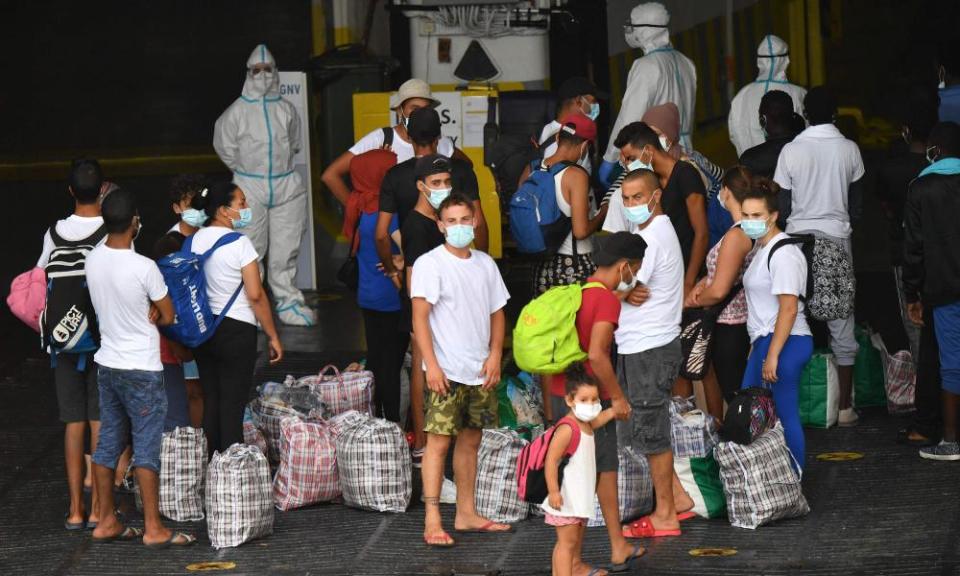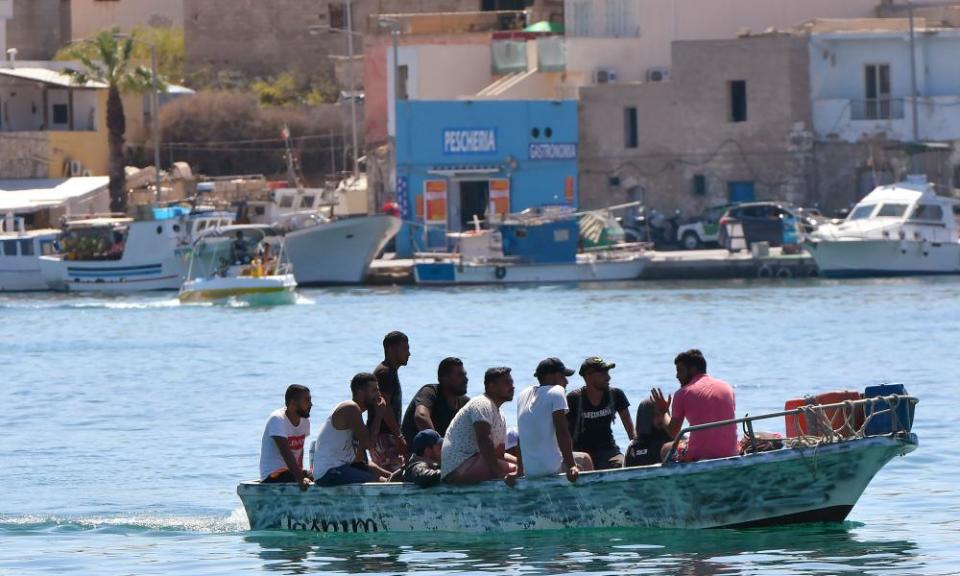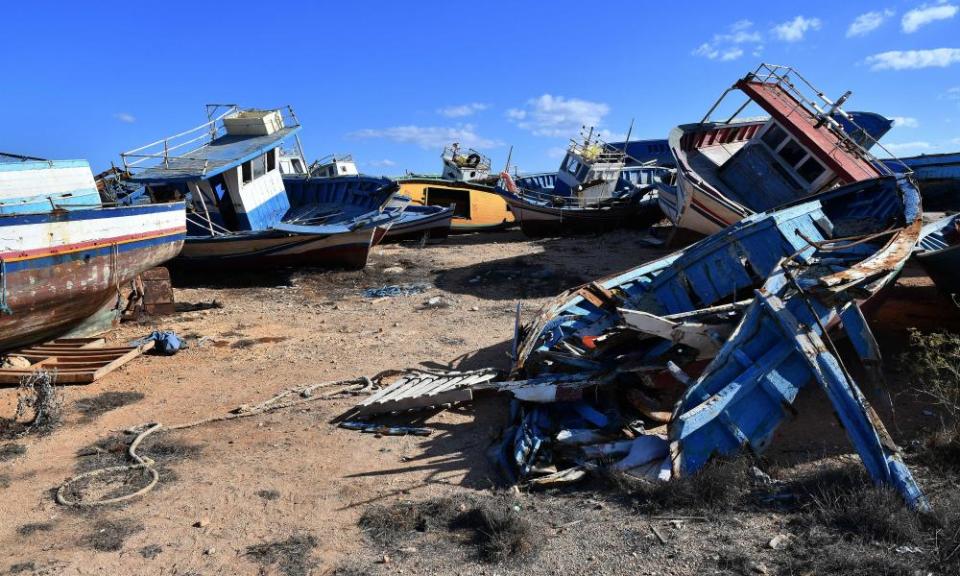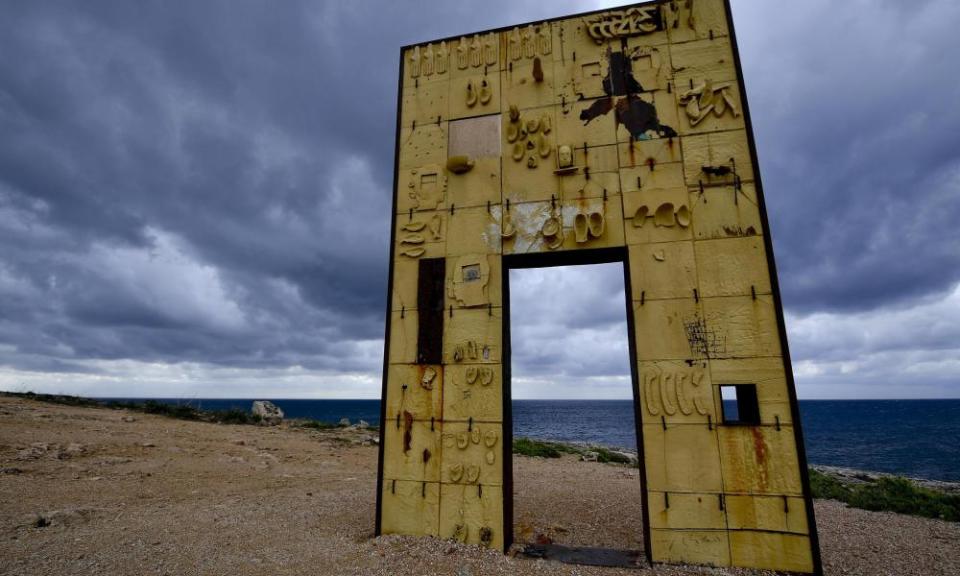'Entire families are arriving at our shores': Covid drives Tunisian exodus

Unsurprisingly for a coastal town perched upon Tunisia’s border with Libya, it’s hot when Ahmed climbs into the back of the car outside the petrol station in Zarzis.
It’s clear from the outset he feels uncomfortable talking to a journalist. Nevertheless, he’s here.
Speaking through a translator, Ahmed explains how, with the loss of this year’s tourist season due to the pandemic, his seasonal job in the nearby island resorts of Djerba has failed to materialise. Now he’s saving what money he can from casual work at a local gym for the 4,000 Tunisian dinars, (£1,125) he’ll need to make the illegal crossing from Tunisia into Europe.
“In Tunisia you can work, but you don’t make money. What you earn, you consume. Before coronavirus there were no jobs,” he says, referring to the country’s endemic unemployment. “Now with coronavirus it’s not going to get better.”
Departing from points along Tunisia’s coast, Tunisians are now the largest group of nationals arriving in Italy, according to figures from the interior ministry, testing its reception centres to the limit. In the first six months of 2019, 1,277 arrivals from Tunisia were intercepted by Italian authorities. This year, that number rose to 6,628.
In July alone, as the pandemic took hold and the waters calmed, 4,252 migrants were intercepted by Italian authorities, compared with 502 the previous year. These numbers do not include those who landed in Italy undetected.
Compared with many countries so far Tunisia’s brush with Covid-19 has been light. At the time of writing, only 1,678 cases of the virus had been detected, resulting in 51 deaths, though the threat of a potential second spike looms ominously.
However, for an economy still struggling to recover from the conditions that led to its 2011 revolution, the combined effect of the lockdown, the loss of its tourism season and the global economic downturn is proving devastating.
They’re arriving with their pets and large suitcases, but not for a holiday. They’ve left their homes forever
Salvatore Vella, prosecutor
Unemployment, one of the key triggers for the 2011 revolution, has not decreased after nine years of stagnation. Before the pandemic, the unemployment rate across Tunisia was around 16%. In some areas, such as the governorate in which Zarzis sits, it reached 30%. The impact of the pandemic will worsen the situation. In April, the IMF predicted that Tunisia’s battered economy would shrink by 4.3%, the largest contraction since the country gained independence in 1956.
By the government’s own estimate, joblessness in the tourism sector alone could reach 400,000.
“While the pandemic has directly affected the tourism sector and its related activities, it is above all the containment, [lockdown] that has impacted many other economic sectors,” says economist Radhi Meddeb. “This ranges from export-oriented industries which have suffered the decline, if not the collapse, of their European principals.”
Moreover, Tunisia’s small traders working on the margins of society risk being pushed to breaking point.

Meddeb said a recent law prohibiting the dismissal of workers for economic reasons during the pandemic was well-intentioned but has only served to postpone the coming storm, as wage bills remain fixed and the drastic drop in demand pushes Tunisian companies to the brink.
In the meantime, illegal migration flourishes. Unlike the industrial human trade in nearby Libya – and, according to locals, from points north along the Tunisian coast where migrants make the trip on larger craft – migration from Zarzis remains very much an artisan affair. Fishermen in Zarzis, one of the country’s largest fishing ports, occasionally make their boats available to pilots, who will then steer the tiny craft to Italy, undisturbed by international radars. Given the huge scale of the sprawling port, passage is not hard to find.
“Whereas in Libya the trafficking of migrants is managed by solid and structured criminal organisations, in Tunisia the smuggling racket is often run by groups of fishermen,” says Salvatore Vella, a prosecutor in Agrigento who is leading the investigations on alleged human trafficking from Tunisia to Sicily.
“They take 70 to 80 people on board, and when they arrive within a few miles of the island, they put the passengers in small boats to complete the journey on their own. Then they return to the Tunisian coasts and carry on with their fishing activities. It sounds like smuggling has become an additional source of income for some Tunisian fishermen, as their earnings have also decreased because of the Covid emergency.”

While images of Tunisians arriving in Italy apparently dressed for their holidays pulling suitcases on wheels and carrying poodles have provided ample fodder for the country’s right-wing commentators, there is little doubt of the poverty that grips many in Zarzis.
Increasingly, entire families are among those departing, with more mothers and children now making the perilous 206-mile journey to connect with relatives already in Europe. Perhaps understandably, none of those approached by the Guardian was willing to be quoted.
However, Vella has no qualms about speaking up: “We are no longer witnessing exclusive arrivals of young people in search of a better future,” he says. “In the last few months, entire families have begun arriving at our shores, and from an array of social classes, even members of what we may describe as Tunisia’s middle class.
“The impression is that the economic crisis caused by the pandemic has hit not only the poorest sectors of society, but also small- and medium-sized Tunisian businesspeople. They’re arriving with their pets and large suitcases, but not for a holiday. They’ve left their homes forever.”
If the government fails to proclaim a state of emergency for Lampedusa, then I will
Totò Martello, mayor of Lampedusa
The preferred entry point for Tunisians is the island of Lampedusa, in Sicily, approximately 10 hours by boat from the coast of Zarzis. The arrival of thousands of Tunisians in recent weeks has led to overcrowding at the island’s welcome centre, which now holds more than 1,000 people. The majority of Tunisians who arrive at Lampedusa are transferred to Sicily, registered and then sent back to Tunisia on direct flights from Palermo to Tunis. Italy’s prime minister Giuseppe Conte has threatened to increase such repatriation flights in response to the high number of arrivals. Consequently, the only choice for many migrants is to flee from Sicilian welcome centres to avoid repatriation.

Under pressure to act, the Tunisian government has launched measures aimed at stemming the flow of migrants from its shores. From 6 August, the country announced the deployment of naval units, surveillance devices, and search teams to patrol the waters around the country’s known departure points.
“The situation has become unmanageable,” says Lampedusa’s mayor, Totò Martello. “If the government fails to proclaim a state of emergency for Lampedusa, then I will.”
For an island that was once heralded for its welcoming of migrants, the wave of recent arrivals from Tunisia has worn thin the resolve of some islanders, who accuse the authorities of putting the management of the asylum seekers on citizens’ shoulders.
Related: 'Tunisia is finished': smugglers profit as downturn drives European exodus
In June Vella launched an investigation into an arson attack that destroyed the “migrant boats graveyard” of Lampedusa. Hundreds of dilapidated boats used over the years by migrants setting forth from North Africa were set ablaze, causing panic among islanders in what investigators believed was a political attack against the authorities – the latest in a series of attacks against pro-migrant symbols. Three days earlier, the monumental work “Gateway to Europe” was vandalised, designed by artist Mimmo Paladino in 2008 and a memorial to the migrants who perished while attempting the journey from North Africa to Europe.
“There’s a precise strategy to create a climate of tension and intolerance toward a very trying situation for our island,” says Martello, referring to the fragile economic situation on the island. Even in Lampedusa the pandemic has exacerbated the crisis in the tourism industry, one of the most important sectors of the Sicilian economy. Following the announcement of the lockdown in March, more than 70% of bookings in hotels, resorts and bed and breakfasts in Sicily were cancelled.

“There’s a parallel between the effect of the pandemic on the economy of Tunisia and the economic consequences in Sicily,” says Martello. “Even those who should welcome migrants, like us islanders, are in a bind because of the effects of the Covid crisis.”
Elsewhere in Zarzis, within the city’s sweltering backstreets, Ridha showed the Guardian round his home, pointing to the bed where he slept in the open, and the outhouse where his brother slept. Their mother lives in the house’s two threadbare rooms.
With medical bills to pay for the family, Ridha has been offered free passage on condition he serves as mate to the boat’s skipper. The trip would provide him with the opportunity to send regular money home. He is aware of the penalties for trafficking, up to 10 years’ imprisonment according to a 2016 law, but in reality closer to six months, and is reluctant to make the trip. Instead, he will save what he can from sporadic house painting work and selling fish. But the temptation to leave Tunisia is strong. As a passenger, the worse the law can do is return him home, TD4,000 worse off.
“In Europe, you can earn €50 (£45) to €60 a day. I can take €20 a day and send the rest back,” Ridha says. “Then I can bring my family over.”

